Four tips to educate children and young people on consent
Domestic, family, and sexual violence in Australia is unfortunately all too common, with according to the Australian Institute of Health and Welfare between 2021 – 2022 approximately:
- 1 in 6 women and 1 in 18 men had experienced physical and or sexual violence by a previous or current partner since the age of 15.
- 1 in 4 women and 1 in 7 men had experienced emotional abuse by a current partner or previous partner since the age of 15.
- 1.4 million Australians had experienced violence from another family member.
What does this mean for children and young people?
We know that early childhood development educating children and young people around respect, equality, consent, and express emotions in a safe manner plays a significant role in the prevention of domestic, family, and sexual violence. It is these conversations and resources that provide children with the tools that can assist with communicating feelings without resorting to controlling or violent behaviours. These strategies are an asset to both childhood development and adult life, with the added benefit of more people being able to identify when others are using domestic, family and/or sexual violence behaviours towards them or loved ones. Below we have put together a guide of where to start and how to incorporate these behaviours in a safe and supportive manner.
Top four tips
Being an active listener when a child is having a conversation with you.
We know if can be difficult sometimes to be always remain an active listener when on average children ask between 200 – 300 questions day, but it is an important step to ensure children feel heard and understood. Promoting conversations when children even when they may be feeling angry, frustrated, or anxious provides an opportunity for them to navigate their feelings through respectful conversations, rather than resorting to negative behaviours such as yelling, hitting, biting etc.
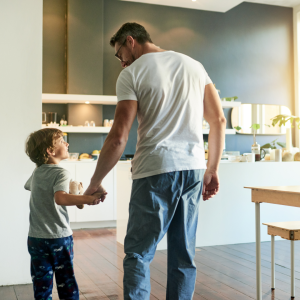
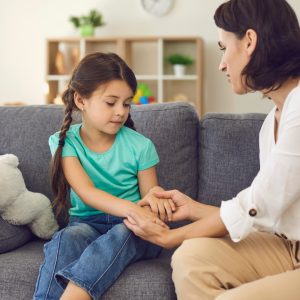
Being clear and specific
When having conversations with children it is key to be specific and clear, in order for them to understand what action needs to be taken in response. This step will compliment respectful conversations, avoiding any frustrations from you or the child not understanding what the other is requesting. This will also teach and provide practise to children about how to be clear and have respectful conversations with other family members, friends, schoolteachers, and members of the public.
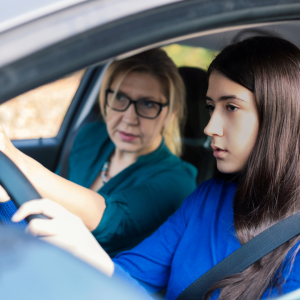
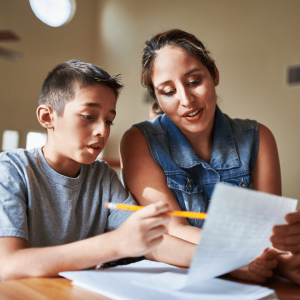
Encouraging independence and control about decisions that directly affect them.
This step is crucial as it educates children about consent, boundaries, body autonomy, and making decisions that directly impact them. This can slowly be embedded starting with children picking their haircut or choosing their outfit on the weekend. As children get older the level of responsibilities and decisions do grow, therefore it is important to start this early to ensure that children feel supported when making those big choices when they are older that define their individually, career path, and lifestyle.
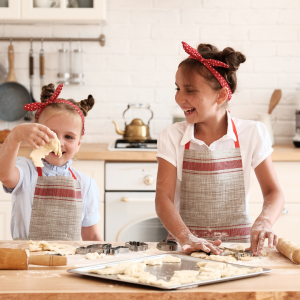

Being a role model for respect in your relationships.
Whilst children do take part in active learning at school, they also participate in what is called observational learning. Observational learning occurs when someone witnesses’ behaviours of another which they may memorised or copy. This type of learning commonly occurs in children; therefore, it is important that and children are witnessing respectful actions and conversations taking place in all relationships.
For more information on this topic, we have included some additional resources below:
- 54 reasons – Child Participation Framework
- The Conversation Guide – Respect.gov.au
- Young children and communication – Better Health Channel
Together, as a community we can change the future for upcoming generations and work towards a world free from violence.

